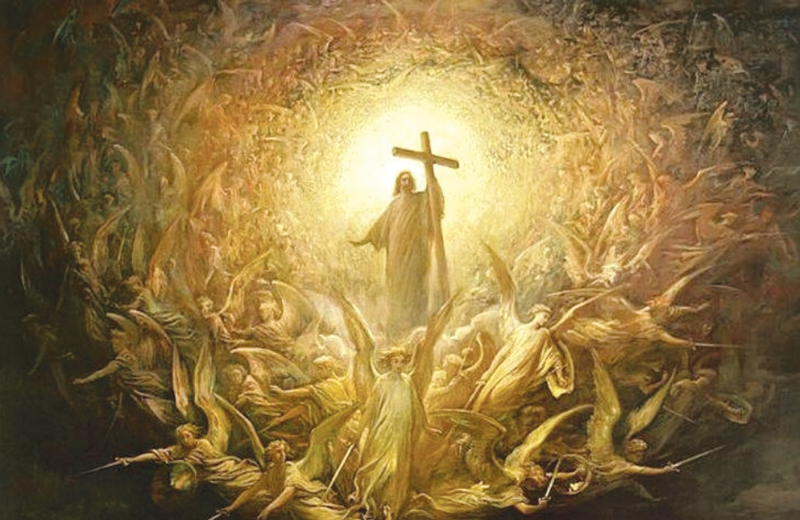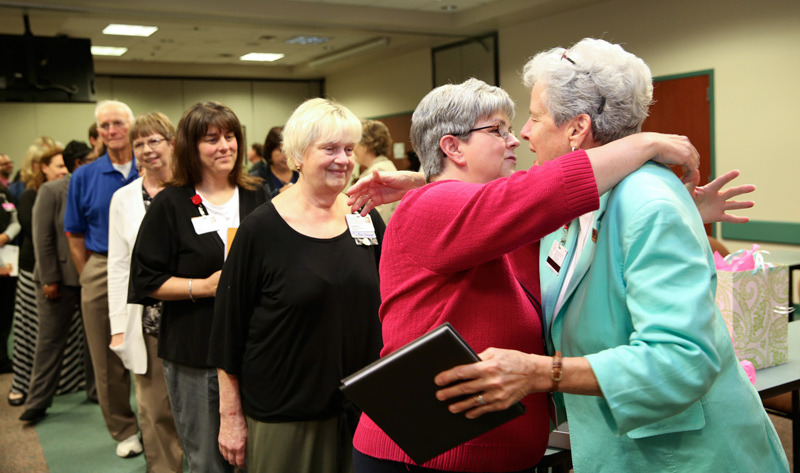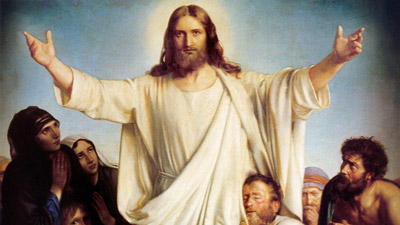
A 13-year-old who lived across the street from our convent announced, after a weekend with a friend, “I got saved.” She had gone to church and participated in an altar call. Her parents would likely agree with my observation that she didn’t don a halo forever after.
“Getting saved” is language Catholics don’t typically use. We talk about sacraments of initiation, growing in virtue, and remaining in the state of grace. But we never imagine that one dramatic God-moment cinches us for a lifetime, unless perhaps in the case of a deathbed conversion.
We share with other Christians a sense that salvation is pure gift. We don’t deserve it, and it’s the sacrificial love of Christ that connects us with God and promises heaven for all eternity. His dying and rising sets humanity right with God. We don’t imagine that we are saved by good works, as some of our brothers and sisters think. The heroic saving efforts are not ours. We’re just invited to trust and to respond by becoming more Christ-like.
We also know from experience that at any given moment we can opt to do good and do well or to go way off track. God’s lavish love offers us salvation, but we remain free to take it or leave it. Unfortunately, we can reject God and the good even after decades of spiritual advantages.
The Catechism presents original sin as preference of self over God. It talks about sin in general as perverse attachment — even to things which in proper contexts can be good. So when we sin we are over the top in something — over the top in thinking we know better than God and Holy Mother the Church, or over the top in valuing or seeking something we have made into our personal idol. Being baptized tilts the balance scales toward the good, so that we can know God and God’s will. But we are still free to succumb to our own fancies, stubbornness, or narcissism.
Grace abounds, but it also impels us, over and over, to repentance. It’s something like muscle that needs a workout to stay toned. Grace just doesn’t flex if we’re lazy. We have to stay humble enough to admit that we can kid ourselves, goof off, and excuse almost anything, even things that gravely offend God. When we fall, grace gives us the gumption to get up.
When I’m confronted by people who demand to know whether I’ve been saved, I have a stock response: “I’m a born again Catholic, and I’ve accepted Jesus Christ as my personal savior.” It stymies them. Somehow they never give me a chance to explain that my lifetime has required quite a number of confessions and recommitments. I’ve been reborn spiritually more than once. They also don’t quite get that “my personal savior” wills the salvation of the whole world. But he doesn’t quite work it as a once-and-done operation in our immortal souls. We have to keep saying, “Yes, Lord.”
Sister Pamela Smith, SSCM, is the Secretary for Education and Faith Formation at the Diocese of Charleston. Email her at psmith@catholic-doc.org.
Image: The Triumph Of Christianity Over Paganism; Gustave Doré, 1868.




